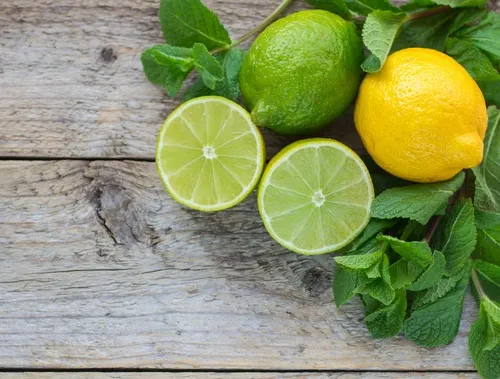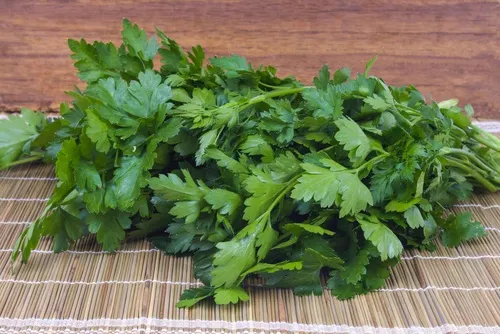Lemon and Parsley Syrup that May Help With Kidney Stones

In today’s article, we’ll tell you why this drink is so healthy and how you can use it to help with kidney stones.
Our kidneys process a large majority of waste products found in the human body. Furthermore, they excrete this waste through our urine.
Therefore, when fluids are not adequately flushed from our system, mineral salts and other chemical substances form hard objects known as stones.
Their presence in the body causes quite a lot of pain and can develop into serious complications that deteriorate our health.
Although the size of kidney stones can vary on a case by case basis, they block our urinary flow in the majority of cases, which stops our bladder from completely emptying itself.
In turn, kidney stones can lead to the development of urinary tract infections (UTIs) and can even cause hemorrhages.
Fortunately, we can pass kidney stones by taking certain medication and using natural remedies. However, when the size of the kidney stone is relatively large, we may need to have it surgically removed.
This homemade lemon and parsley syrup is a remedy that can be used alongside other treatments for this condition.
Syrup that may help with kidney stones
Firstly, before exploring some of the benefits of this syrup, you must first know that the key to avoid developing this condition is drinking lots of liquids.
If you don’t keep your body well-hydrated, then your urine stays in your body and the substances contained in it turn into kidney stones.
Hence, drinking a lot of water every day helps to alleviate this problem.
However, it’s important to consume ingredients with diuretic and detoxifying properties. This helps to stimulate kidney function and also helps to dissolve kidney stones that already exist.
This time we suggest getting the most out of the properties found in lemon and parsley. They’re both full of nutrients that have been used to fight against disorders that affect the health of our kidneys.
Read also:
Amazing Detox Diet for Cleansing Your Kidneys
The benefits of lemon

Lemon juice contains citric and phosphoric acid, two components which reduce the risk of kidney stones developing in our body.
Their high citrate content decreases urinary acidity and encourages excess salts and toxins to be flushed out of the body.
Moreover, lemon juice relies on diuretic effects that promote the elimination of liquids retained in body tissues. This increases the amount of urine produced by the body.
Furthermore, lemon juice has antibacterial and anti-fungal properties that prevent the development of kidney and bladder infections.
Benefits of Parsley

Parsley is one of the most popular plants when it comes to kidney health.
It contains essential oils that have high apiol and myristicin content. These two substances give parsley strong diuretic properties that increase the production of urine.
Furthermore, parsley is a source of chlorophyll, which is a plant compound that helps to flush out toxins and excess fat from the body.
Finally, parsley also contains a high amount of vitamin C, which is a nutrient that strengthens the immune system to make it fight against infections.
Read also:
How do you prepare this syrup?
This syrup is very easy to make and also produces good results.
In this recipe, you mix the lemon and parsley with olive oil, maple syrup and honey to create a complete remedy that may help with kidney stones.
Ingredients
- The juice of one lemon
- One handful of fresh parsley
- One cup of olive oil (224g)
- 1 cup of maple syrup (325g)
- 1 cup of honey (335g)
- One glass jar with a lid
Method
- Squeeze the juice out of the lemon and mix it with a handful of parsley in a blender.
- After blending the lemon juice and parsley together, you should have a paste.
- Now add the rest of the ingredients to the paste and mix them together until you get a smooth mixture.
- When the syrup is ready, pour it in a glass jar.
- Seal the jar well and store it in a cool and dark place.
How to take it
- Take a teaspoon of this product on an empty stomach everyday.
- If you like, you could dilute the syrup in a glass of warm water to make it easier to drink.
- You can complement the effects of this syrup by drinking two liters of water every day.
Patients who have small kidney stones and kidney stones in small quantities, will see the benefits if they continuously drink this syrup.
And those who have a more advanced diagnosis of kidney stones can use this syrup alongside other treatments.
We encourage you to prepare this mixture as soon as possible and to also use this useful recipe to look after your kidneys.
All cited sources were thoroughly reviewed by our team to ensure their quality, reliability, currency, and validity. The bibliography of this article was considered reliable and of academic or scientific accuracy.
- Monga, M. (2008). Quantitative assessment of citric acid in lemon juice, lime juice, and commercially-available fruit juice products. International Braz J Urol. https://doi.org/10.1089/end.2007.0304
- Aras, B., Kalfazade, N., Tuǧcu, V., Kemahli, E., Özbay, B., Polat, H., & Taşçi, A. I. (2008). Can lemon juice be an alternative to potassium citrate in the treatment of urinary calcium stones in patients with hypocitraturia? A prospective randomized study. Urological Research. https://doi.org/10.1007/s00240-008-0152-6
- Kreydiyyeh, S. I., & Usta, J. (2002). Diuretic effect and mechanism of action of parsley. Journal of Ethnopharmacology. https://doi.org/10.1016/S0378-8741(01)00408-1
- Al-Yousofy F, Gumaih H, Ibrahim H, A. A. (2017). Parsley! Mechanism as antiurolithiasis remedy. Am J Clin Exp Urol.
- Prezioso, D., Strazzullo, P., Lotti, T., Bianchi, G., Borghi, L., Caione, P., … Zattoni, F. (2015). Dietary treatment of urinary risk factors for renal stone formation. A review of CLU Working Group. Archivio Italiano Di Urologia e Andrologia. https://doi.org/10.4081/aiua.2015.2.105
This text is provided for informational purposes only and does not replace consultation with a professional. If in doubt, consult your specialist.








